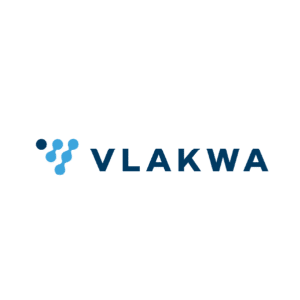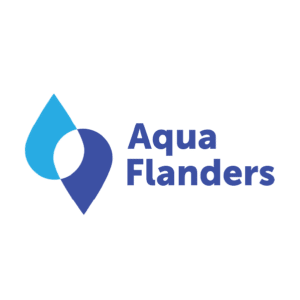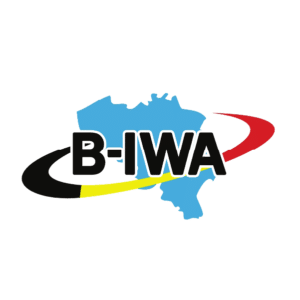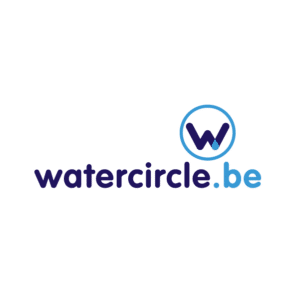Challenges & opportunities
Enabling an integrated approach to managing water resources
The Progress towards the Sustainable Development Goals Report of the UN Secretary-General observes that 29% of the global population lack access to safe drinking water, while only 45% use safely managed sanitation facilities. More efficient use and innovative management of water resources are critical to addressing the competing and growing water demands from various industries and users, the threats to water security and the potential risks and scarcity due to climate change.
Conventional solutions are not enough to deal with this mounting stress in the water sector. To achieve the clean water and sanitation goals by 2030, we need to accelerate the implementation of integrated water resources management and the deployment of smart solutions built on circular economy models. That, in turn, requires strong partnerships, technology transfer, exchange of innovative ideas and demonstration of successful case studies.
Special session
Join Brave Blue World's exclusive European premiere
The Brave Blue World documentary paints an optimistic picture of how humanity is adopting new technologies and innovations to re-think how we manage water.
The story follows Paul O'Callaghan, a water industry expert and the CEO of BlueTech Research, visiting sites around the world that are employing novel ways of tackling existing water problems. As he meets with pioneers and innovators who are addressing global water and sanitation challenges, their stories reveal a hopeful future for our most precious resource.
This exclusive European premiere will be followed by a high-level panel discussion.
Managing partners
Conference programme
Water sessions
Watch our conference sessions. Sessions labeled were live-streamed from our studios in Brussels.
Sponsored session
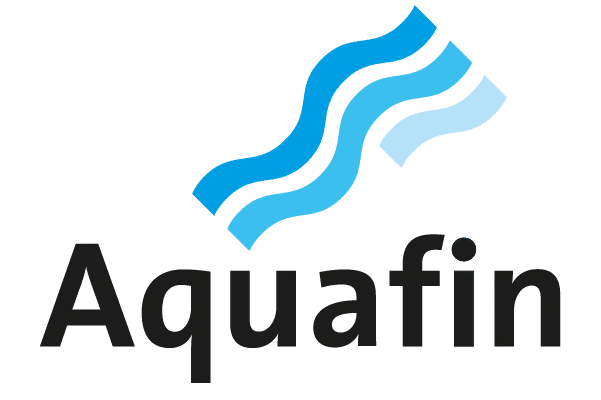
No water resilient cities without engaged citizens
Plenary Water
Special session
EUROPEAN PREMIERE BRAVE BLUE WORLD
26/10/2020, 18:55 - 20:45
The Brave Blue World documentary paints an optimistic picture of how humanity is adopting new technologies and innovations to re-think how we manage water.
Brave Blue World is supported by its production partners WEF, DuPont Water Solutions, Suez and L’Oréal, its impact partners Xylem and aqualia, and its collaboration partners Water.org and the Water Alliance.
This exclusive European premiere, organised by Capture (Centre for Advanced Process Technology for Urban REsource recovery), Vlakwa (Flanders Knowledge Center Water) in collaboration with B-IWA (Belgian committee of the International Water Association), watercircle.be (Flemish Water Technology Network) and Aquaflanders (Federation of Flemish water companies and sewer managers), will be followed by a high-level panel discussion.
Documentary Brave Blue World
Paul O’Callaghan, a water industry expert and the CEO of BlueTech Research, visites sites around the world that are employing novel ways of tackling existing water problems. As he meets with pioneers and innovators who are addressing global water and sanitation challenges, their stories reveal a hopeful future for our most precious resource.
High-level debate: opportunities for the water sector enabled by new technologies
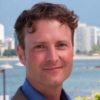
Paul O'Callaghan
Blue Tech Research
Founder & CEO, Executive Producer Brave Blue World
After being awarded a biochemistry degree, Paul O’Callaghan worked for the Body Shop alongside the pioneering environmentalist Anita Roddick. Paul then volunteered for the World Wildlife Fund in Malaysia, after which he completed a Master’s degree and returned to research the effects that deforestation was having on water quality.
Paul’s next role was with Atkins, one of the globally leading engineering management consultancies. Whilst working as an engineering consultant, he observed the prolonged length of time it took to bring water technologies to the marketplace. As a result, he founded BlueTech Research in 2011 with a clear mission to support innovation.
Paul’s latest project, the Brave Blue World documentary, is designed to increase awareness of existing solutions for the water crisis. He co-produced the documentary that has attracted support from a host of A-list celebrities. Paul regularly lectures and has recently spoken at Davos 2020, Web Summit 2020 and at Harvard and Cambridge Universities. He advises many global Fortune 500 corporates including L’Oréal, Microsoft and PepsiCo on their water strategy policies. He is currently also studying for a PhD in Water Innovation.

Egbert Lox
Umicore
Senior Vice President
Egbert Lox earned his MSc (1982) and PhD (1987) in Chemical Engineering at the University of Ghent (Belgium). He joined the central research laboratories of Degussa AG (Germany) in 1987, where he built up the R&D group for automotive emission control catalysts and assumed consecutive management levels in that area till 2006.
From 2006 to 2012, Egbert Lox took care of the management of the corporate R&D team of Umicore, which deploys its activities in Belgium and Germany. Between 2013 and September 2020, he assumed the position of Senior Vice-President Government Affairs, based in Umicore’s headquarters in Brussels (Belgium). Since October 2020, he is Senior Vice-President assigned to the Chief Technical Officer.
Egbert Lox represents Umicore in the Board or Executive Committee of several industry associations in Belgium, France, Germany and the EU. He lectures on automotive emission control catalysts, amongst other subjects, at the Department of Mechanical Engineering of the Karlsruhe Institute of Technology (KIT) in Germany. In 2015, he was granted the honorary professorship at this university.
He is a permanent member of the Royal Flemish Academy of Belgium for Sciences and Arts (KVAB) and an elected member of the Academia Scientiarum et Artium Europaea (EASA, Salzburg, Austria).

Christiane Malcorps
Solvay
Global Head of Facility Excellence

Veronica Manfredi
European Commission
Director for Quality of Life in DG Environment

Francesca Vanthielen
Moderator
Water
Plenary session
Round Table: cooperation towards resilient water systems
27/10/2020, 10:00 - 11:15
Resilient water systems should be firm, shock-resistant and flexible. Resilience and flexibility are essential characteristics of any water system that needs to cope with highly fluctuating circumstances. Every water user must be able to adapt to the new reality of heavy rainfalls and long periods of drought, and our cities and regions must also remain livable in this new reality.
Flexible water systems must therefore be built that make maximum use of the available water resources for all possible applications and uses. Given the highly complex interactions within the water system itself and with external systems for energy, food or mobility, one thing is sure: we will have to take a strong focus on cooperation. Cooperation is not just required to develop and finance innovative water solutions. It is also crucial for the implementation of such solutions at scale and the related follow-up.
Keynote speech: cooperation towards resilient water systems

H.E. Zuhal Demir
Flemish government
Flemish Minister of environment
Panel discussion: cooperation towards resilient water systems

Luc Vandenbulcke
DEME
CEO

Jacob Bossaer
Bosaq
CEO

Jan Goossens
Aquafin
CEO
Since the end of 2016, Jan Goossens has been the CEO of Aquafin. This company employs over 1000 dedicated employees and operates more than 300 wastewater treatment units throughout Flanders. Aquafin also manages and finances the continued expansion of the sewer infrastructure and water treatment capacity on behalf of the Flemish Region. Backed by in-house research, the company is also diversifying towards large-scale energy, heat and nutrient recovery from wastewater. Developing integrated stormwater plans for municipalities countering the increasing effects of climate change, such as drought and flooding, is one of Aquafin’s other key activities.
With a PhD in analytical chemistry as educational background, Jan Goossens started his professional career at the chemical company BASF holding several management positions in HR, sales and operations. He was involved with both plastic (nylon) and fertilizer businesses.
Before becoming Aquafin’s CEO, Jan held the position of Managing Director at Marpobel, an industrial water treatment facility in the Port of Antwerp. Next, he was appointed Managing Director at Industrial Services, a Dutch maintenance provider to the Chemical, Energy and Offshore Industry. During 15 years, Jan has also been a guest professor at Ghent University where he still serves as a guest lecturer on water management.

George Brik
Hydrovolta
CEO
George Brik is a co-founder and the CEO of Hydrovolta, a company specialised in water desalination. He has over 20 years of experience in sustainable & environmental entrepreneurship, with a special focus on blue economy, and improving efficiency and solving problems for the water treatment industry. George Brik is driven by a passion to improve and create eco-friendly and sustainable water treatment technologies to protect the future generations.

Inge Genné
VITO
Program manager WATER
Inge Genné is program manager Water at VITO (the Flemish Institute for Technological Research). Since 2016, she is heading a multidisciplinary team of experts (engineering, hydrology, monitoring, economics, data science) that addresses the economical and societal water challenges in an integrated way. VITO’s innovation strategy focusses on digital water, the value of water and the water/climate nexus. VITO develops tools and products and supports industry, public authorities and cities to evaluate sustainable water management concepts. VITO also hosts the Flanders Knowledge Center Water (Vlakwa) that enhances the formation of innovation partnerships and supports the Flemish water agenda by developing a systemic view on water.
Inge has a Ph.D. in chemistry (University of Leuven) and started her research career in the area of membrane technology. She then expanded her horizon to the broader water domain leading the teams on industrial water and separation technology. Inge is coördinating the WaterPROOF Flanders project, focused on the implementation of demosites to accelerate the Blue deal strategy of the Flemish Government.

Diane D’Arras
IWA
President

Francesca Vanthielen
Moderator
Food Water
Deep dive session
Technology mix for sustainable irrigation
26/10/2020, 09:30 - 11:30
Anywhere around the world, sustainable irrigation is critical for realising food and water security. Even if technological solutions with significant water saving potential have been in play for some time, upscaling their use has been challenging in various hydrogeological and socio-economic conditions. Hence, most regions continue to suffer from low efficiency in irrigation water use. Enhancing that efficiency requires more than deploying technologies such as micro-irrigation systems, digital tools, and solar-powered water pumps. It demands a mix combining the use of technologies and best practices with effective policies and sustainable finance mechanisms, as well as inclusive water management.
Chaired by
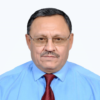
Alok Sikka
International Water Management Institute (IWMI)
IWMI Representative India & Principal Researcher
Alok K. Sikka is with the International Water Management Institute, Delhi Office as IWMI Representative-India since April, 2016. Prior to joining IWMI, he served as Deputy Director General (Natural Resource Management), Indian Council of Agricultural Research (ICAR) and Technical Expert (Watershed Development) (in the rank of Additional Secretary to Govt. of India), National Rainfed Area Authority (NRAA), Planning Commission, Government of India, New Delhi. He was Director of ICAR Research Complex for Eastern Region, Patna and Basin Coordinator for Indo-Gangetic Basin under the CGIAR Challenge Program on Water and Food from 2002-2007. He is Ph. D. in Civil and Environmental Engineering with specialisation in Hydrology and Water Resources Engineering from Utah State University, Logan, Utah.
Besides working with ICAR for many years at the Indian Institute of Soil & Water Conservation, Dehradun and its Research Centres, he was with the National Institute of Hydrology, Roorkee; visiting Professor at University of Arizona, Tucson; and Faculty at the Oregon State University, Corvallis, USA. He has more than 251 publications and is recipient of many national awards including Fellow of National Academy of Agricultural Sciences. He has a rich and diverse experience of over 38 years in research, institutional and policy issues, teaching, training, extension and consultancy in the areas of natural resource management, soil & water conservation, watershed management, water harvesting, hydrologic modelling, water management, drought management, climate change, water productivity and farming systems.
Opening remarks: Technology mix for sustainable irrigation

Alok Sikka
International Water Management Institute (IWMI)
IWMI Representative India & Principal Researcher
Alok K. Sikka is with the International Water Management Institute, Delhi Office as IWMI Representative-India since April, 2016. Prior to joining IWMI, he served as Deputy Director General (Natural Resource Management), Indian Council of Agricultural Research (ICAR) and Technical Expert (Watershed Development) (in the rank of Additional Secretary to Govt. of India), National Rainfed Area Authority (NRAA), Planning Commission, Government of India, New Delhi. He was Director of ICAR Research Complex for Eastern Region, Patna and Basin Coordinator for Indo-Gangetic Basin under the CGIAR Challenge Program on Water and Food from 2002-2007. He is Ph. D. in Civil and Environmental Engineering with specialisation in Hydrology and Water Resources Engineering from Utah State University, Logan, Utah.
Besides working with ICAR for many years at the Indian Institute of Soil & Water Conservation, Dehradun and its Research Centres, he was with the National Institute of Hydrology, Roorkee; visiting Professor at University of Arizona, Tucson; and Faculty at the Oregon State University, Corvallis, USA. He has more than 251 publications and is recipient of many national awards including Fellow of National Academy of Agricultural Sciences. He has a rich and diverse experience of over 38 years in research, institutional and policy issues, teaching, training, extension and consultancy in the areas of natural resource management, soil & water conservation, watershed management, water harvesting, hydrologic modelling, water management, drought management, climate change, water productivity and farming systems.
Keynote address by Shri U. P. Singh
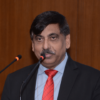
Shri U.P. Singh
Department of Water Resources, River Development & Ganga Rejuvenation, Ministry of Jal Shakti, Goverment of India
Secretary
Shri U.P. Singh is a 1985 batch Indian Administrative Service Officer of Odisha Cadre. He did his B.Tech in Mechanical Engineering from IIT, Kanpur. Having hold important assignments in both Central and State Governments, he possesses rich and varied experience.
He joined the Ministry of Water Resources & River Development and Ganga Rejuvenation on 1.6. 2016 as Additional Secretary and also held the post of Mission Director, National Water Mission (NWM). Later he assumed the charge of Director General, National Mission for Cleaning Ganga (NMCG) on 7.10.2016. Prior to joining the Ministry of Water Resources, RD & GR he worked as Additional Secretary in the Ministry of Petroleum and Natural Gas. He has the experience of working in different sectors like Water Resources, Finance, Steel and Transport.
Presently he is Secretary in the Department of Water Resources, River Development & Ganga Rejuvenation, Ministry of Jal Shakti, w.e.f. 1.12.2017. He is deeply involved in policy, planning and management of water resources in India. He oversees the implementation of PMKSY Projects, Inter-Linking of Rivers, two World Bank funded projects, viz. National Hydrology Project and National Ground Water Management and Improvement Scheme. These projects envisage revolutionizing water resources management in the country.
Succes stories on agri-irrigation technology in Israel
Dan Alluf will discuss the technologies and the research in the area of irrigation water use in Israel and illustrate this with regional examples of replications. He will highlight his experience & success stories in implementing Israeli know-how & agri-irrigation technology solutions and collaborative business models in Indian fields and other parts of the world.

Dan Alluf
Embassy of Israel
MASHAV Counsellor, Science and Agriculture
Dan Alluf heads the Agriculture and Water segments at the embassy of Israel in India & Sri-Lanka. He brings 17 years of Managerial Experience in both Private and Public sectors across global markets, with specialisation in Drip-irrigation and Water Management. Dan holds a Master degree of Business Administration and a B.Sc. graduate in Plant Science, Agriculture Economy & Marketing. He is team leader of the Agriculture ISRAEL-INDIA Government-to-Government cooperation, the “INDO-ISRAEL AGRICULTURAL PROJECT” (IIAP) and the “INDO-ISRAEL VILLAGES OF EXCELEENCE” (IIVOE) in cooperation with MIDH GOI and State governments. He heads the water cooperation on the Israel- India Government-to-Government level and leads the “INDIA-ISRAEL BUNDELKHAND WATER PROJECT” in cooperation with Govt. of India, Uttar Pradesh Govt. & JAL SHAKTI GOI.
Adaptive Measures in Farm Level Water Management for Higher WUEs
Globally, rising temperatures will translate into increased crop water demand. Therefore, special impetus should be given towards mitigation at farm-level by enhancing the capabilities of community-adopted climate-resilient technological options. Together with an approach at a catchment level, this will help to increase the overall efficiency of water use.
The relative quantities of water being lost at the different levels in an irrigation system needs to be considered carefully and measures should be taken to reduce the losses and manage the water resources efficiently. The largest volume of water lost is normally at the field level, where both the irrigated surface area and percolation losses below the root zone are high. The second major loss of water happens at during the distribution of water from field-to-field in the field channels.
The Climate Adapt Project (funded by the Ministry of Foreign Affairs, Norway and coordinated by NIBIO, Norway), AP Micro Irrigation Project (funded by NABARD, India), Base line studies on Water Use Efficiencies of Irrigation Projects (Funded by Govt. of India) have made significant contributions to capacity building, design and implementation of various measures to improve water use efficiency in the states of Andhra Pradesh and Telangana in India. The outcomes from these projects have helped in developing policy guidelines and wider adaptation of efficiency measures in the two states.

Kaluvai Yella Reddy
International Commission on Irrigation and Drainage (ICID)
Vice President
Kaluvai Yella Reddy is the Dean (Faculty of Agril. Engg & Technology) of ANGR Agricultural University, Andhra Pradesh, India. He has more than 35 years of experience in teaching, research, project management and administration. He obtained B.Tech (Agril Engg) from Dr PDKV, Akola, M.Tech and Ph.D degrees from IIT, Kharagpur and PG Diploma from University of Arizona, USA.
- As Principal Investigator, he developed Solar Powered Micro Irrigation System in 2002 with the financial support of Govt of India.
- As Project Manager, he successfully completed $ 3.5 million FAO funded AP Water Management Project.
- As Technical Advisor to Andhra Pradesh Micro Irrigation Project (APMIP), he strengthened and supported the $ 570 million project in achieving 1.1 million ha under MI systems in 10 years.
- As Director of WALAMTARI, Hyderabad (2012-2018) he contributed for the growth of the Institute as one of the best in India.
- He organized over 25 national and international conferences and workshops and Published over 120 scientific papers.
- He received the ‘International Commission on Irrigation and Drainage ICID WATSAVE Technology Award’ in the 20th Congress of ICID held in Lahore (2008).
- He was elected as Vice-President of (ICID) in the 68th International Executive Committee meeting held in Mexico City in Oct 2017.
He visited more than 20 countries on official and technical assignments.
Waterwise: A Plant Based Sensor and Advanced Analytics Approach for Refining Irrigation Scheduling
Across irrigation industries, there remain significant opportunities to improve yield and water use efficiency with accurate irrigation timing. Efficient irrigation relies on determining crop water status and predictions of future crop water needs. Through the CSIRO Digiscape “WaterWise” initiative we have developed a series of advanced analytics platforms that combine the use of monitored and forecasted crop water stress status (reliant on continuous canopy temperature measurements and weather data) to provide necessary information on irrigation timing. Improved accuracy in these decisions is supported by utilising underpinning knowledge of crops’ physiological response to temperature. The initiative is developing approaches to speed up the application of this technology for use in other irrigated crops (a minimum toolbox approach). Currently, WaterWise is being evaluated using a web-based application linked to real-time sensors, and it is intended that these systems will form part of an integrated approach to irrigation management.

Rose Brodrick
Commonwealth Scientific and Industrial Research Organization (CSIRO)
Research Scientist
Rose Brodrick, Senior Research Scientist, CSIRO Agriculture and Food, Canberra Australia. Dr Brodrick’s research is focused on developing new technologies and integrated digital systems for the agricultural industry to improve farm productivity. Her primary research area is using sensing technology (in-field, aerial and satellite) to develop solutions for crop management. The teams Dr Brodrick leads are working on projects to responding to challenges generated by drought, variable and changing climates, by developing and delivering new knowledge, technologies and system solutions tailored to assisting in on-farm decision making.
Brodrick has 20 years of experience in working with irrigators (cotton, tomatoes, sugarcane, tree crops) to develop management solutions in irrigated agriculture. Her research into crop physiology and agronomy has led to changes in production practices within the Australian Cotton Industry, and she has strong collaborations with researcher overseas. Dr Brodrick leads the CSIRO’s WaterWise Project that brings together a multi-disciplinary team that are developing digital solutions for precision irrigation in high-value crops as part of the CSIRO’s Digiscape Future Science Platform. Ultimately the aim is for these systems to part of a fully integrated irrigation toolbox for growers delivering savings in water that can be used to boost productivity or increase cropping area.
Cloud based Irrigation Management
Manna, an irrigation intelligence leader, provides growers around the world with the actionable information they need to make better-informed and more confident irrigation decisions. Its sensor-free, software-only approach leverages high-resolution, frequently refreshed satellite data and hyper-local weather information to deliver highly affordable and accessible solutions for site-specific irrigation recommendations.
In order to increase water use efficiency of Micro-irrigation systems and conventional flood irrigation, farmers need to have accurate forecasts & estimates of water requirement for crops on real-time basis i.e minimum weekly basis. This helps farmers apply precise amounts of water to the crop based on farm conditions as well crop conditions and resulting in increased production, increased quality of production and savings in water & electricity.
At present, more than 2000 Indian Farmers (Area -4000 Ha), are using this software and have received excellent results.

Sangita Ladha
RIVULIS Irrigation India Pvt Ltd.
Director-Business
DSangita Ladha is M-Tech – Agricultural Engineering from IIT-Kharagpur and Doctorate in Agricultural Development. She has been spearheading operations with leading organisations in Irrigation and Water Management and is currently associated with Rivulis Irrigation India Pvt Ltd as Director Business.
Her domain expertise is Precision Farming, Automated Irrigation and Water Management, Protected
Cultivation – Green-house Technology, Agri-Value Chain Management and Digital informatics-based agro-advisory services. She has nearly 30 years of experience in the area of Design, Marketing and Business Development of Micro-irrigation Systems and in Development and Management of Practical and Innovative Indo-Dutch Training Centers for horticulture and in particular for promotion of Greenhouse Technology in the country. She has expertise in Conceptualization, Development, Marketing and Promotion of hi-tech horticulture projects, advanced and practical training programmes and handling turnkey contracts largely in the area of Greenhouse/Protected Cultivation and in Water Conservation-Drip/Sprinkler/landscape irrigation.
She was formerly Director of Indo-Dutch advanced and practical training centres in hi-tech horticulture, namely International Horticulture Innovation and Training Centre (IHITC), Jaipur and of Horticulture Training Centre, (HTC), Pune and was instrumental in bagging and execution of innovative projects under USAID and Euro-AID. She was associated with M/s Jain Irrigation Systems Ltd, as the Vice President for Marketing and Business Development and was handling Corporate affairs and Policy advocacy in New Delhi.
Leveraging technologies for participatory enhancement of irrigation water use efficiency
The dominant use of water for irrigation, especially in the South Asian region that has the highest water withdrawal (about 92%) for agriculture, necessitates adopting innovative approaches and technologies to improve the current water use in irrigation sector. Creating models that can overcome the persistent barriers in the sector with widescale impact requires convergence of innovative technologies with practitioners on the ground particularly the farmers.
This presentation shall bring to the fore the potential opportunities of enhancing the irrigation water use efficiency through innovative technologies and participatory irrigation management through stakeholder prioritised interventions with an upscaling potential for a wider impact. It shall highlight some of the innovative approaches adopted to test technological solutions at the grassroot level through a participatory multi-stakeholder platform involving the local farmers in Punjab (India) and creating an attractive package of affordable & prioritized agri-water efficient interventions for crops like paddy and wheat. These prioritized interventions resulted in significant water savings (up to about 30%) as compared to the conventional farms.
The presentation shall also introduce an innovative ‘Optiflo’ technology tested in Maharashtra (India) that promises additional water savings in an existing micro-irrigation system through a pressure-independent flow controller which gives a near-constant flow rate and reduces the associated water losses.

Mr. Anshuman
Water Resources, The Energy and Resources Institute (TERI)
Associate Director
Jaiswal Anshuman, Associate Director, Water Resources Division of TERI (The Energy and Resources Institute) has been working in the field of water sector since last 23 years. His key qualifications include M. Tech. in energy & environmental management from Indian Institute of Technology (IIT), N. Delhi (India).
His expertise in the water sector lies in the areas of Integrated water resource management (IWRM), Water use efficiency, Water audits, Water conservation & watershed management, Urban & rural water supply & demand management, Climate change and water security; Provision of drinking water, Water quality and pollution studies, Adequacy & efficiency studies of WTPs & ETPs, Water policy & regulation, Training & capacity building in water & environmental management; Environmental impact assessment (EIA) studies etc. He also has expertise in water laboratory & analytical instrumentation, quality control & ISO 9001 systems. He has carried out several comprehensive research and implementation projects in context of water resources (surface water, groundwater), issues (water scarcity, pollution, use efficiency etc.), sectors (irrigation, domestic & industrial) & stakeholders (Central/state Governments & local communities). He has presented several papers at national and international fora and has several relevant national & international publications.
He has been a member of several advisory committees. Currently he is Designated Member, Expert Committee on ‘Ecology, Environment, Earth & Ocean Sciences and Water’ (E3OW) under CSIR (Ministry of Science & Technology, GoI), Designated Member, Domain Expert Group for ‘Deployment of Water technologies’ under CSIR (Ministry of Science & Technology, GoI), Member of Sectional Committee for Water Quality for Industrial Purposes under the Bureau of Indian Standards (BIS), Member of Sectional Committee for Water Quality for Industrial Purposes under the Bureau of Indian Standards (BIS); Jury, National Water Awards (awarded by Ministry of Jal Shakti, GoI); Advisor, Water Digest, Jury Member, Water Digest Water Awards, Organised by Water Digest and UNESCO.
Q&A – Technology mix for sustainable irrigation
Water
Deep dive session
Upscaling technological solutions for water supply systems
27/10/2020, 08:30 - 10:00
Improved water supply and sanitation services are a prerequisite to poverty reduction and sustainable economic growth. Although universal access to safe drinking water is considered a fundamental human right, still many countries lag in achieving the goal of providing safe drinking water for all. While adequate supply of drinking water with desired water quality has been a focus for countries, still many of them face significant challenges for efficient service delivery including high leakages/losses, inadequate per capita water supply, inequity in distribution, high non-revenue water (NRW), poor water quality, low metering & unsustainable financial mechanisms.
A considerable amount of these challenges can be addressed through a boost in technological solutions for e.g. advanced leak detection technologies, smart metering, ICT tools, AI based solutions, advanced water treatment & distribution network-based technologies/solutions, real-time water quality monitoring technologies etc. The key to achieving SDG targets on drinking water is to develop, mainstream and up-scale innovative technologies boosted by effective dissemination, financial investments, technology transfers & partnerships as well as conducive policy framework. This session will explore the role innovative technologies can play in improving the water supply service delivery at a large scale through enhanced collaboration and sustainable market mechanism.
Chaired by
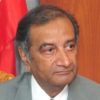
Ravi Narayanan
Asia Pacific Water Forum (APWF)
Chair
Ravi Narayanan is currently Chair of the Asia Pacific Water Forum whose secretariat is in Tokyo, Japan, International Mentor to the Japan Water Forum and Chair of the Water Integrity Network, Berlin. He was a member of the World Panel on Financing Water Infrastructure (the Camdessus Panel) and the UN Millennium Task Force on Water and Sanitation. He is a life member of the Norwegian Water Academy.
At the national level he was a member of the Technical Expert Group set up by the Government of India to assess its national drinking water mission and a member of the 12th Five Year Plan Working Group on Water and Sanitation. He is an Associate of the National Institute of Advanced Studies in India.
With degrees in Physics from Delhi University and Engineering from Cambridge University, Ravi began his career in the corporate sector as a design engineer with General Electric Company in the UK in 1966. Since then he held positions in production, marketing and general management in the manufacturing sector. In the not-for-profit sector, Ravi was Asia Director at ActionAid and then Chief Executive of WaterAid. UK. He was an advisor to the Arghyam Foundation which was set up in India to work on sustainable water and sanitation issues in India.
He was awarded an honorary CBE by the UK Government in 2009 for water and sanitation services to poor communities in Africa and South Asia.
Opening remarks: upscaling solutions for water supply systems

Ravi Narayanan
Asia Pacific Water Forum (APWF)
Chair
Ravi Narayanan is currently Chair of the Asia Pacific Water Forum whose secretariat is in Tokyo, Japan, International Mentor to the Japan Water Forum and Chair of the Water Integrity Network, Berlin. He was a member of the World Panel on Financing Water Infrastructure (the Camdessus Panel) and the UN Millennium Task Force on Water and Sanitation. He is a life member of the Norwegian Water Academy.
At the national level he was a member of the Technical Expert Group set up by the Government of India to assess its national drinking water mission and a member of the 12th Five Year Plan Working Group on Water and Sanitation. He is an Associate of the National Institute of Advanced Studies in India.
With degrees in Physics from Delhi University and Engineering from Cambridge University, Ravi began his career in the corporate sector as a design engineer with General Electric Company in the UK in 1966. Since then he held positions in production, marketing and general management in the manufacturing sector. In the not-for-profit sector, Ravi was Asia Director at ActionAid and then Chief Executive of WaterAid. UK. He was an advisor to the Arghyam Foundation which was set up in India to work on sustainable water and sanitation issues in India.
He was awarded an honorary CBE by the UK Government in 2009 for water and sanitation services to poor communities in Africa and South Asia.
Keynote speech by Ms. D. Thara
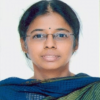
D. Thara
Ministry of Housing and Urban Affairs & National Mission Director (AMRUT) Govt. of India
Joint Secretary
D. Thara has been working as an IAS Officer since 1995. She has been working in the State of Gujarat since 1997 and has a versatile experience in various cities of Gujarat such as Ahmedabad, Kheda, Rajkot, Vadodara and Surendranagar in various Departments. She has worked as a District Development Officer in the cities of Vadodara and Surendranagar for a period of 2 years in Land Revenue Management and District Administration and Development Administration. She also has experience as a Collector in Land Revenue Management & District Administration Departments in the cities of Kheda for a period of 1 year and Ahmedabad for a period of 3 years.
D. Thara has also worked as the Deputy Municipal Commissioner of Ahmedabad Municipal Corporation for approximately 2 years. During this period, she has worked on a number of JNNURM Projects. She has been one of the pioneers of the BRTS Project which was a very essential project of the city. She has also initiated the Second Revised Draft Development Plan 2021 as Chief Executive Authority, Ahmedabad Urban Development Authority (AUDA) in 2008. During her tenure as Chief Executive Authority, AUDA, the Second Revised Draft Development Plan 2021, Ahmedabad was completed and also the First Revised Draft Development Plan of Gandhinagar as the CEA, GUDA was completed. With her focused vision and great leadership qualities, a number of new concepts and ideas were incorporated in the Second Revised Draft Development Plan 2021. Few of them included the Central Business District, Transit Oriented Zone and Residential Affordable Housing Zone and also the preparation of Local Area Plans for such projects. She has been the Chief Executive Authority of AUDA and Municipal Commissioner, Ahmedabad. During her tenure, Ahmedabad was made and executed as a Smart City. Water Management and Security was the focus area. 7.5 lac people were given surface water in one year. 4 STPs were initiated and sewage treatment gap is being completely addressed.
D. Thara was working as Vice Chairman & Managing Director, Gujarat Industrial Development Corporation, Gandhinagar since 24/06/2016. After that she had joined Ministry of Housing and Urban Affairs as Joint Secretary on 29/07/2019.
Leveraging technology for clean and sustainable water
Singapore is a densely populated island city-state, with 5.7 million people living on a land area of about 725 sq km. Although Singapore receives abundant rainfall, it is not able to collect and store all the rainwater with its limited size. Hence, Singapore is projected to be one of the most water-stressed countries in the world by 2040 (source: World Research Institute, 2015). Water will always be an existential priority for Singapore.
The mission of the Public Utilities Board (PUB) is to supply good water, reclaim used water and tame stormwater. Over the last 50 years, Singapore has built a robust and diversified supply of water known as the “Four National Taps” – water from local catchments, imported water from Malaysia, high-grade reclaimed water known as NEWater, and desalinated water. Tap water quality is well within World Health Organisation (WHO) drinking water guidelines and is suitable for drinking from the tap without any further filtration.

Tiing Liang Moh
Public Utilities Board (PUB), Singapore
Deputy Director (Technology Collaboration), Industry and Technology Collaboration Department
Moh Tiing Liang is a Deputy Director at the Industry & Technology Collaboration Department in PUB, Singapore’s National Water Agency. He currently oversees PUB’s technology collaboration efforts with the aim to grow technologies through partnerships with the industry and other stakeholders. In this role, he leads a team to commercialise water technologies that are co-developed by PUB. Before joining PUB, Tiing Liang served in the Singapore Armed Forces as an aeronautical engineer. Tiing Liang graduated in mechanical engineering from the National University of Singapore and obtained his EMBA from Rutgers University.
Oxidative and photochemical water treatment processes for sustainable urban water supply systems: abatement of organic contaminants and disinfection
Ozonation (O3 and O3/H2O2) and UV-based processes (UV and UV/H2O2) are increasingly applied in drinking water treatment for the purpose of disinfection and oxidation of micropollutants. These (photochemical) oxidation processes have also received increasing attention as a potential option for enhanced wastewater treatment to eliminate various micropollutants and emerging biological contaminants, in order to protect drinking water sources as well as aquatic ecosystem.
Recent advances in applications of ozonation and UV-based processes for drinking water and wastewater treatment are presented, including application history and status in Korea, in addition to selected research activities on principle-based approaches for describing and modelling the contaminant elimination efficiency in these advanced water treatment processes.

Yunho Lee
Gwangju Institute of Science & Technology
Professor Environmental Science and Engineering
Yunho Lee is a full professor at the School of Earth Sciences and Environmental Engineering at the Gwangju Institute of Science and Technology (GIST), Korea. He received a PhD from the Chemical Engineering Department at Seoul National University, Korea in 2005 and did a postdoctoral research at the Swiss Federal Institute of Aquatic Science and Technology (Eawag) before joining GIST in 2011.
His research focuses on characterising and optimising oxidative water treatment processes for drinking water and municipal and aquaculture wastewater for abating organic and biological contaminants of concern with minimized toxic by-product formation. He uses principle-based approaches for his research, such as chemical kinetics and mechanisms, which are also combined with analytical, toxicological, microbiological, and process engineering aspects.
Yunho Lee has authored more than 70 papers in the field of water science and engineering. He has been serving as the editor of Journal of Environmental Chemical Engineering (Elsevier) since 2013 and advisory board member of Environmental Science and Technology Letter (ACS) since 2016.
Digital transformation needs for efficient water management
Jeroen van der Sommen will discuss the digital transformation needs for efficient water management. He will share the innovation on digitalisation and automation for integrated real-time water quality monitoring as the basis of an efficient decision-making tool for improving water use efficiency. Amongst others, he will present the innovative Akvo Caddisfly technology and its potential widescale application benefits.

Jeroen van der Sommen
Akvo
Director
Jeroen van der Sommen is the co-founder and Managing Director of Akvo, an organisation seeking to revamp and disrupt development aid through data and digitalisation. Jeroen started his career as a hydrogeologist in Burkina Faso in 1982 and holds an MSc in Hydrology from Vrije Universiteit Amsterdam. Throughout the 1980s, he worked and lived in Burkina Faso, Mozambique, Niger, Mali, Indonesia and India, managing water supply and management projects on behalf of organisations such as the World Bank and the European Union. In 1998, Jeroen founded the Netherlands Water Partnership, where he built a dynamic network of over 200 member organisations. Today, Jeroen is the driving force behind Akvo’s strategy in West Africa.
Sustainable drinking water supply and capacity development of rural communities in Cambodia and Indonesia
Facility/Programme for Capacity Development for Poverty Reduction through South-South Triangular Cooperation in Science and Technology (the Republic of Korea (RoK) and United Nations Office for South-South corporation (UNOSSC) Facility) – Phase 2 was initiated in 2016 with the aim to share the RoK’s development experience and know-how in science and technology with developing countries. Our contribution to this programme is providing a drinking water treatment system with a gravity-driven membrane (GDM) to rural communities in Cambodia and Indonesia. As a sustainable technology for providing drinking water to village schools, it has several advantages including no external energy requirement, minimal maintenance, effective filtration against bacteria and protozoa, compact and easy operation, and long lifetime. Current efforts are underway to complete the installation of the drinking water filtration systems in rural schools both in Srey Santhor, Cambodia and Sukabumi, Indonesia. Healthy school programs are also being coordinated with other facility partners by providing safe drinking water and other studies which impact the public health of the students at these rural schools.

Chun Youngpil
International Environmental Research Institute (IERI)
Senior Researcher
Youngpil Chun joined the International Environmental Research Institute (IERI), Gwangju Institute of Science and Technology (GIST) in 2019, after earning his PhD in environmental engineering from the University of South Australia (UniSA, 2016). He subsequently trained as a postdoctoral researcher in the Singapore Membrane Technology Centre (SMTC), Nanyang Technological University (NTU, 2016-2019). For the last decade, a major focus of his work has been the identification and characterisation of membrane fouling during water purification processes. Since joined the IERI, he has been focusing on deployment of the gravity-driven membrane (GDM) process as a decentralised drinking water treatment technology in developing countries with a particular focus on rural communities.
Efficient service delivery for 24/7 water supply in India
Sanjoy Roy will present the critical factors and management approach that are vital for efficient service delivery through example of project implementation of 24×7 water supply in an Indian city that brought about significant reduction of NRW (non-revenue water), efficient water delivery, reduced losses and increase in revenue of the water supply utility.
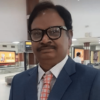
Sanjoy Roy
Orange City Water (OCW)
Chief Executive Officer
A visionary Civil Engineer & Master of Business Administration (Fin), Mr Sanjoy Roy is responsible for the day-to-day Technical progress of OCW’s ambitious ongoing 24×7 water supply project in Nagpur. He is a techno – commercial leader, having 30+ years of experience in Infrastructure industry of which more than 7+ years at the CXO level, who have brought revolutionary changes in water supply system of Nagpur.
OCW has seen new highs of success in his leadership. While delivering his best services as the CEO of OCW, the foremost target that he has geared up to achieve is the equitable water distribution to Nagpur and to reduce the Non-Revenue Water in Nagpur to the set service level benchmarks.
Under his leadership OCW has added several coloured feathers in its cap by receiving the National Gold Award as Most Progressive Water Utility in India, the 2018 Best Water Management Practices Award-2017 and the Best PPP Operator Award by The Water Digest-2017.
Further achievements of OCW under his leadership include
• awarded by Prime Minister for best practiced PPP project in Nagpur in 2016 during launching of AMRUT in New Delhi.
• received Sustainable Leadership award in Parivartan 2016 in New Delhi
• awarded as Gold winner in 2018 at India Smart Grid Forum (a PPP initiative of Government of India) for Most Progressive Water Utility in India
Q&A – Upscaling technological solutions for water supply systems
Water
Thematic session
Key learnings from water technological solutions
28/10/2020, 11:30 - 13:00
The two deep dive sessions will be concluded in the closing session which will include summarizing both the sessions on technology mix for sustainable irrigation and upscaling technological solutions for water supply systems. The key learnings from the two sessions will also be highlighted.
Summarizing the water themes

Mr. Anshuman
Water Resources, The Energy and Resources Institute (TERI)
Associate Director
Jaiswal Anshuman, Associate Director, Water Resources Division of TERI (The Energy and Resources Institute) has been working in the field of water sector since last 23 years. His key qualifications include M. Tech. in energy & environmental management from Indian Institute of Technology (IIT), N. Delhi (India).
His expertise in the water sector lies in the areas of Integrated water resource management (IWRM), Water use efficiency, Water audits, Water conservation & watershed management, Urban & rural water supply & demand management, Climate change and water security; Provision of drinking water, Water quality and pollution studies, Adequacy & efficiency studies of WTPs & ETPs, Water policy & regulation, Training & capacity building in water & environmental management; Environmental impact assessment (EIA) studies etc. He also has expertise in water laboratory & analytical instrumentation, quality control & ISO 9001 systems. He has carried out several comprehensive research and implementation projects in context of water resources (surface water, groundwater), issues (water scarcity, pollution, use efficiency etc.), sectors (irrigation, domestic & industrial) & stakeholders (Central/state Governments & local communities). He has presented several papers at national and international fora and has several relevant national & international publications.
He has been a member of several advisory committees. Currently he is Designated Member, Expert Committee on ‘Ecology, Environment, Earth & Ocean Sciences and Water’ (E3OW) under CSIR (Ministry of Science & Technology, GoI), Designated Member, Domain Expert Group for ‘Deployment of Water technologies’ under CSIR (Ministry of Science & Technology, GoI), Member of Sectional Committee for Water Quality for Industrial Purposes under the Bureau of Indian Standards (BIS), Member of Sectional Committee for Water Quality for Industrial Purposes under the Bureau of Indian Standards (BIS); Jury, National Water Awards (awarded by Ministry of Jal Shakti, GoI); Advisor, Water Digest, Jury Member, Water Digest Water Awards, Organised by Water Digest and UNESCO.
Closing remarks: key learnings from water technological solutions

Ibrahim Hafeezur Rehman
VITO Arabia Science and Technology
CEO
Ibrahim Hafeezur Rehman is presently Director of India Operations of VITO and also CEO – VITO Arabia Science and Technology LLC, Dubai. VITO is an independent Flemish (Belgian) research organization in the area of clean technology and sustainable development.
With a Master in Organic Chemistry; specialization program in Environment Management from University of Manchester; and a Doctorate from University of Utrecht; Dr Rehman has over 30 years experience in the field of sustainable development in general and water and energy management in particular.
Rehman has led a large number of research and implementation projects in India and across number of other countries in the field of energy, water and environment. Rehman has served on various National and International Committees and Boards of Government/Multi-lateral organizations/Corporates. He has worked in different countries such as India, Belgium, UAE, and Thailand and led a large number of transformative Projects and Campaigns in India, Africa, South East Asia, etc. He is also a co-author of several books and has written a number scientific (and policy) papers/articles in reputed journals (including Nature) and magazines.
Water smart irrigation: A requirement for sustainable agriculture in the water value-chain
Water is crucial to development all over the world. It waters the fields, nurtures the crops and stock, provides recreation, it supports mines, industry, electricity generation and it provides life for plants and animals that make up ecosystems.
Innovative and sustainable agri-water management with smart irrigation technology is very important to adapt to a variable and changing climate. The role of technology and new ideas are essential in making agriculture resilient to a fast-changing climate when the demand for water is over-stressed.
Agriculture is expected to feed an estimated population of more than 9 billion by the year 2050 through a 60% increase over the 2006 food production levels, with 80% of the increase stemming from intensification which is essentially possible under irrigation. At the same time, increasing water scarcity and demand for water resources from other sectors is putting unprecedented pressure on agriculture that uses approximately 70% of the total water.
To satisfy global demand for food, by 2030, agriculture is expected to increase water requirements by 1.3 times. At the present moment 300 million hectares are irrigated (ICID, 2020) which is about 19% of the world’s cultivated lands and it accounts for almost half of the value of global crop production. The world’s population tripled in the twentieth century (there are now more than 7 billion humans on earth) and irrigation play a vital role to enhance the worldwide supply of food and fibre for all people.
Water, especially in irrigated agriculture, poses one of the most vital sustainable development challenges of our time.
We need to be more ‘water smart’ and that can be affected through smart irrigation technology as well as Climate-smart agriculture to address food security and climate challenges through three main pillars:
- sustainably increasing agricultural productivity and incomes,
- adapting and building resilience to climate change,
- reducing and/or removing greenhouse gases emissions, where possible.

Felix Britz Reinders
International Commission on Irrigation and Drainage (ICID)
President
Felix Reinders is the President of the International Commission on Irrigation and Drainage as well as the Chair of the Global Framework on Water Scarcity in Agriculture. He completed his Engineering studies in 1979 at the University of Pretoria and is a Professional Engineer, registered with the Engineering Council of South Africa. He specialises in water resources management and irrigation engineering in the agricultural and civil engineering field, including research, design, training and mentoring. As Manager of Irrigation and Drainage Engineering at the Agricultural Research Council’s Agricultural Engineering group, he plays a pivotal role in the co-ordination of especially irrigation research, development, testing and design. He is the author of several scientific papers and manuals.
Valedictory Address

Shri U.P. Singh
Department of Water Resources, River Development & Ganga Rejuvenation, Ministry of Jal Shakti, Goverment of India
Secretary
Shri U.P. Singh is a 1985 batch Indian Administrative Service Officer of Odisha Cadre. He did his B.Tech in Mechanical Engineering from IIT, Kanpur. Having hold important assignments in both Central and State Governments, he possesses rich and varied experience.
He joined the Ministry of Water Resources & River Development and Ganga Rejuvenation on 1.6. 2016 as Additional Secretary and also held the post of Mission Director, National Water Mission (NWM). Later he assumed the charge of Director General, National Mission for Cleaning Ganga (NMCG) on 7.10.2016. Prior to joining the Ministry of Water Resources, RD & GR he worked as Additional Secretary in the Ministry of Petroleum and Natural Gas. He has the experience of working in different sectors like Water Resources, Finance, Steel and Transport.
Presently he is Secretary in the Department of Water Resources, River Development & Ganga Rejuvenation, Ministry of Jal Shakti, w.e.f. 1.12.2017. He is deeply involved in policy, planning and management of water resources in India. He oversees the implementation of PMKSY Projects, Inter-Linking of Rivers, two World Bank funded projects, viz. National Hydrology Project and National Ground Water Management and Improvement Scheme. These projects envisage revolutionizing water resources management in the country.
Vote of thanks

Paul Campling
VITO
Business Development manager - Water Management and Technology
Paul Campling is a hydrologist, specialised in the domain of land and water management and policy assessment. He is currently International Business Development Manager at VITO (the Flemish Institute for Technological Research) where he coordinates the acquisition and management of European environmental projects. Previously he worked as a Project Manager at the European Environment Agency (Copenhagen) coordinating the IRENA project to develop and report on agri-environmental indicators for the European Union. He also spent 5 years in Nigeria working on a research project concerned with water resources development, for which he completed his PhD.
Paul Campling is an expert in European environmental policy. Over the last 25 years, he has managed a number of environmental projects addressing different environmental concerns for the European Space Agency (flood monitoring), DG Eurostat (landscape indicators), the Joint Research Centre (permanent grasslands, nitrogen balances), and DG ENV (cost benefit analysis of the Water Framework Directive, alternative water supplies, market-based instruments for reducing air pollution, soil organic matter – best practices and trade-offs). He is a coordinator of the Pavitra Ganga project in India that is demonstrating improved solutions for wastewater treatment, resource recovery (energy and materials) and smart water management (sensors and ICT).
Water
Special session
Roundtable Aquafin
27/10/2020, 11:45 - 13:15
No water resilient cities without engaged citizens
Climate change significantly affects cities. The increase extreme weather events forces cities to rethink their water management. To cope with the impact of climate change, many are thinking about how they can evolve into a water resilient city and some are leading by example. Despite the fact that many interesting projects can be done to reshape the public domain, citizens will have to participate as well to make cities water resilient and to reach the ambition of becoming climate proof.
In this round table discussion, the difficulties cities and sewer operators experience in practice will be discussed to convince citizens to engage them and even to take action themselves. What are the best channels to reach them? Do they feel the urge to act? What is holding them back? Who starts the conversation? What (digital) tools are useful?

Brecht Donckels
Aquafin
R&D Engineer

Birgit De Bock
Aquafin
R&D Engineer
Keynote speakers
Water

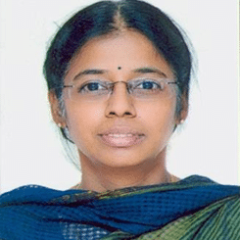
Speakers
Water
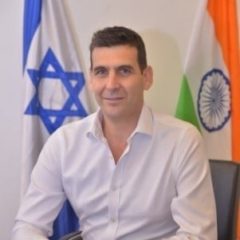
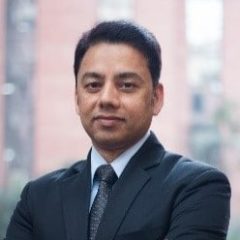
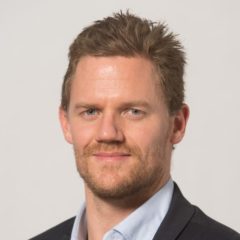
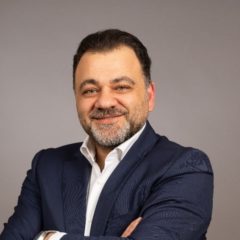
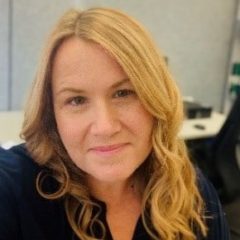
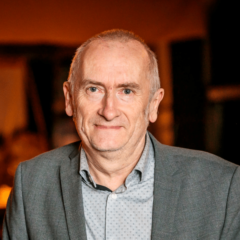
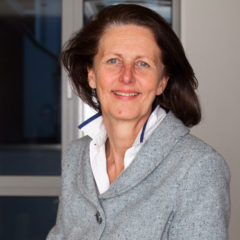

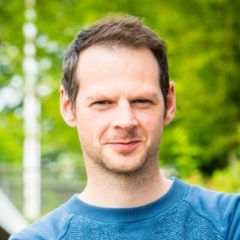
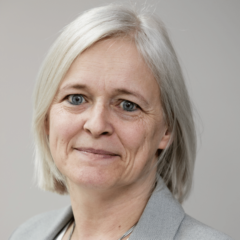
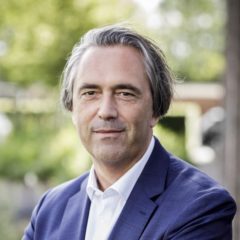
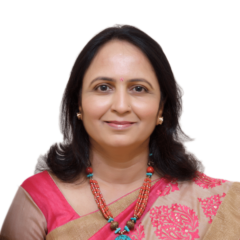
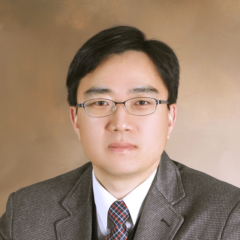





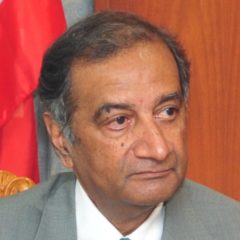
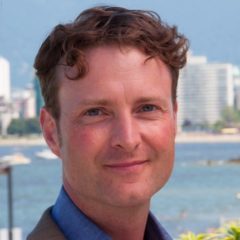
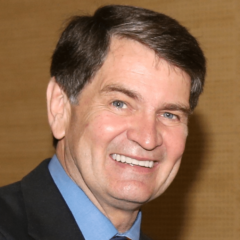
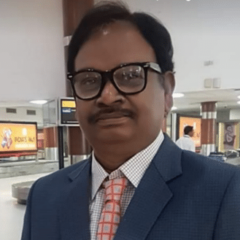
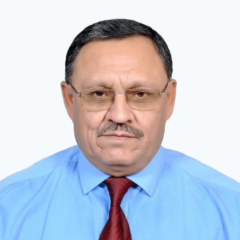
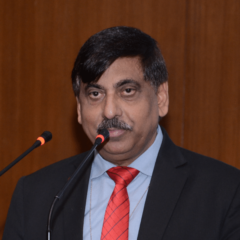

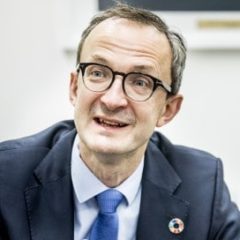
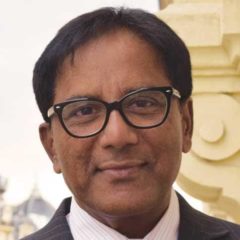

Plenary session
Cooperation towards resilient water systems
Resilient water systems should be firm, shock-resistant and flexible. Resilience & flexibility are essential characteristics of any water system that needs to cope with highly fluctuating circumstances. Every water user must be able to adapt to the new reality of heavy rainfalls and long periods of drought, and our cities and regions must also remain livable in this new reality.
Flexible water systems must therefore be built that make maximum use of the available water resources for all possible applications and uses. Given the highly complex interactions within the water system itself and with external systems for energy, food or mobility, one thing is sure: we will have to take a strong focus on cooperation. Cooperation is not just required to develop and finance innovative water solutions. It is also crucial for the implementation of such solutions at scale and the related follow-up.
Deep dive sessions
Accelerating the pace of achieving the clean water and sanitation goals
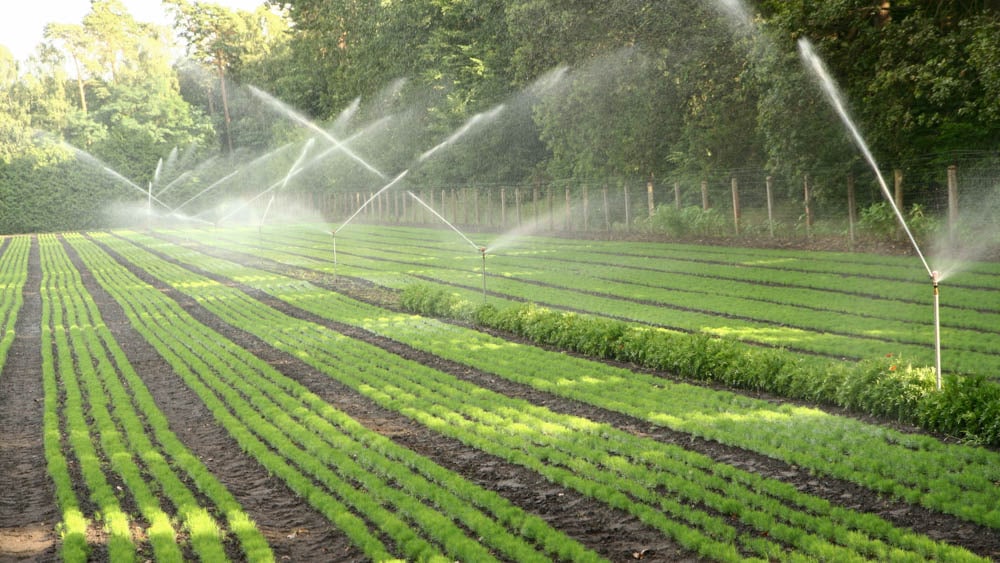
Technology mix for sustainable irrigation
Anywhere around the world, sustainable irrigation is critical for realising food and water security. Even if technological solutions with significant water saving potential have been in play for some time, upscaling their use has been challenging in various hydrogeological and socio-economic conditions. Hence, most regions continue to suffer from low efficiency in irrigation water use. Enhancing that efficiency requires more than deploying technologies such as micro-irrigation systems, digital tools, and solar-powered water pumps. It demands a mix combining the use of technologies and best practices with effective policies and sustainable finance mechanisms, as well as inclusive water management.
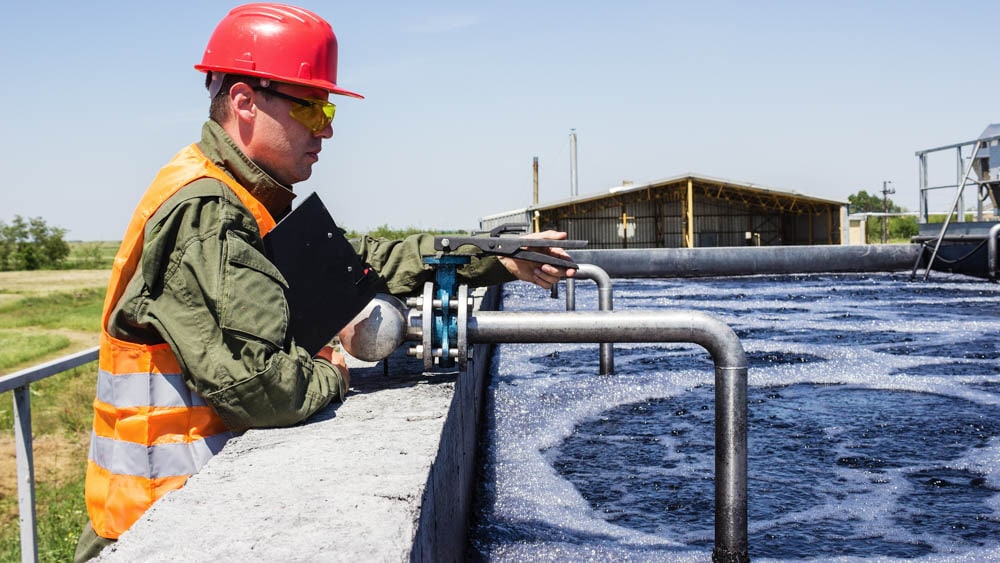
Upscaling solutions for water supply systems
Sustainable growth and less poverty remain out of reach as long as hundreds of millions of people lack access to safe drinking water and adequate sanitation. Too many countries face challenges for efficient water service delivery, including high leakages, inadequate per capita supply, inequity in distribution, high non-revenue water (NRW), and poor water quality. These challenges cannot be addressed without upscaling innovative technological solutions – including the use of digital tools and solutions empowered by Artificial Intelligence. To do that, more effective dissemination strategies are needed, along with appropriate financial investments, technology transfers, strong partnerships and enabling policy frameworks.


